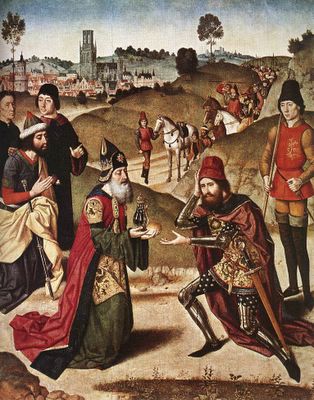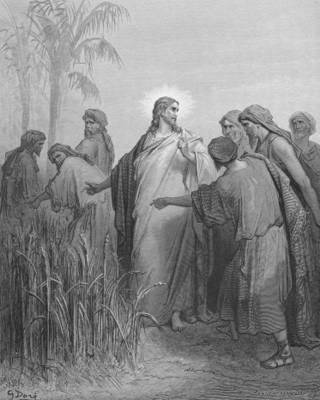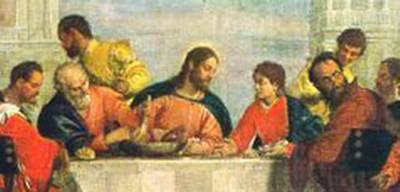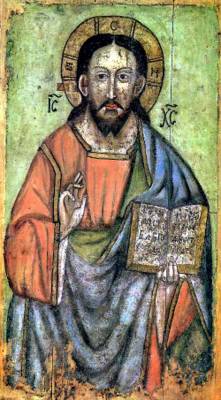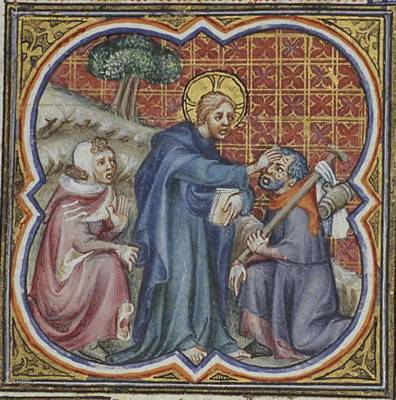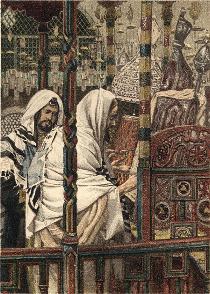Jan 31: The Word is Always Present to Heal and Save

Alexander Master: Jesus Heals a Possessed Man at Gerasa
Koninklijke Bibliotheek, The Hague, c. 1430
Memorial of Saint John Bosco, priest
Gospel: Mk 5:1-20
“Come out of the man, you unclean spirit (NRSV, Mk 5:8b)!”
Father, for so very long now, the human family has been on pilgrimage from nothingness to fuller union with you. Much progress has been made. Never before in history has there been such great concern for the dignity of the human person. Women especially have achieved a fuller participation in society which is a step towards what is rightfully their due. There is a more respect than ever previously acknowledged for diverse minorities within the human family. Still as we move ever forward towards you, Lord, we are nevertheless responsible for terrible crimes committed against one another. The sixtieth anniversary of the liberation of the concentration camps at Auschwitz and Birkenau reminds us of the horrors of the holocaust. Daily news reporting brings home the terrifying excesses of modern warfare. There are times, Father, when despite our growing sensitivity to evil in our midst, it seems as if sin has taken an even greater hold upon us than ever before.
We are grateful, Father, for the gift of your Word, who is always present to us, even as one of us in the flesh, our Lord Jesus Christ. Your Word spoken once and for all is given permanently to us. He challenges us at every moment to accept the gift of your life and, having accepted that gift, always to grow in it. Even when we turn away from you in sin, Lord, to seek out our own will apart from you, your Word remains present to us, inviting us to accept your forgiveness and to live in your grace once again.
The constant presence of your Word to all of us, Father, means that we are never lost. We can never really wander away from you as much as we might try to find our future without you. Evil can never swallow us up. As much as we may surrender to the enticements of the sin of the world and our own self-gratification, the possibility of turning back to you is always there. Your Word not only invites us to return to you but he cajoles with a persistence that is never failing.
There are moments, Lord, when it would seem that we have totally surrendered to evil, that we have become possessed by it, but that is delusion encouraged by the forces that tempt us and encourage us in our sin.
Lord, we are grateful to your Word ever present to us. May we always respond to his invitation to accept you into our lives, to turn back to you from our sins and to say “yes” to your forgiveness. May we also always share that forgiveness freely with others.
Through Christ our Lord. Amen.



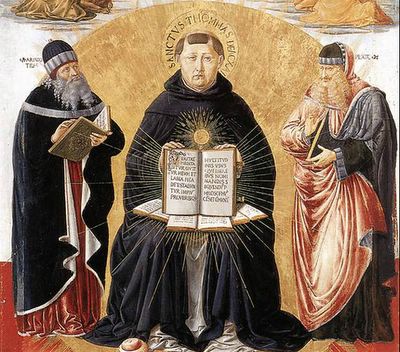


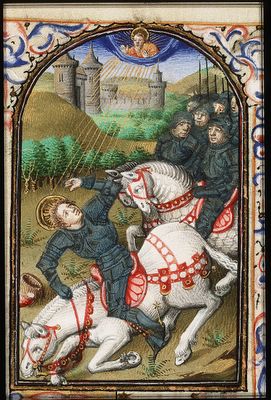




%20hurch%20of%20Protaton%2C%20Mount%20Athos%2C%20c.%201542.jpg)
